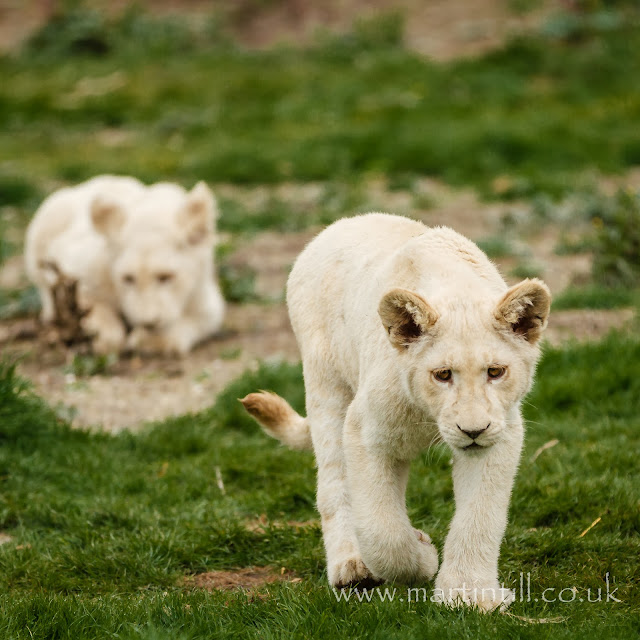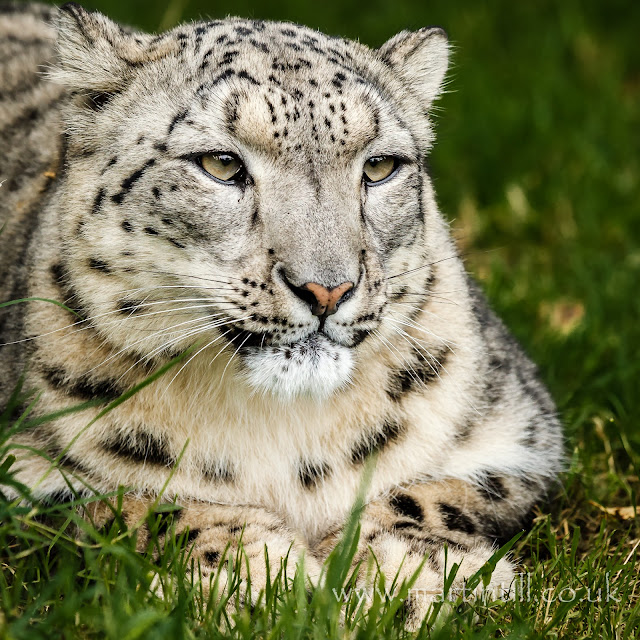The stock lens for the day was a 70-200 f/2.8, which all but the photos of the white lions were taken with; these were more distant and I used a 500mm f/4 for this species.
After a safety briefing and introduction we were soon in front of one of the Amur tigers. This was a fairly easy introduction to photography as the animals were fairly sedentary and did not pose too many technical challenges but, as you can see from the photo below, not particularly photogenic.
 |
| Amur tiger |
Next we moved on to the white lions, where a family group were busy feeding and posing for us.
We were advised to keep our shutter speeds above 1/640th (I aimed for 1/1000th), which meant that I used a range of ISO from 200 to 3200 during the course of the day. Apertures were generally around the f/5.6 to f/7.1 range, with a few shots taken wide-open to give shallow DOF.
 |
| 'The Daddy' |
 |
| Mother with cub |
 |
| Lion cubs at play |
 |
| Leopard stare |
 |
| The Jaguar |
Care was needed to check exposures regularly as it is all too easy to let the whites blow out or, conversely, to under-expose and leave lots of noise lurking in the shadows.
One of the most elegant of the cats at the centre is the Clouded Leopard. The pair were very different in their behaviour, with the female quite happy to pose and the rather ungainly male, which was rather camera-shy. The photo below is the best I got of the male, who has 'warmer' more appealing markings than the female.
 |
| Male clouded leopard |
One of the great things with modern digital cameras is the ability to shoot at high ISO settings and have such little noise that it can be easily removed in Lightroom without any noticeable degradation of image quality.
Having started at 10am it seemed like no time at all until we were breaking for lunch and, once fed and watered, we were out again with our cameras.
One of the most popular cats at the centre is the Snow Leopard and, having been in its company for a few minutes I could see why. It was very serene in its behaviour and, whilst a bit tricky to photograph, it made you want to come back for more.
 |
| Snow leopard - in profile |
 |
| Snow leopard |
These encounters were the highlight of the day and, whilst one can get good images from behind the fences, there's nothing like being a few metres away from these amazing animals.
I'll sign off with a few photos of these beautiful creatures and look forward to next year when I will revisit with my camera.
 |
| Cheetah growling just a few metres away |
 |
| Cheetah, looking more relaxed |
 |
| Eurasian Lynx |
Let us not also forget that all big cats are endangered species and celebrate the work that the WHF and other organisations do in conservation.